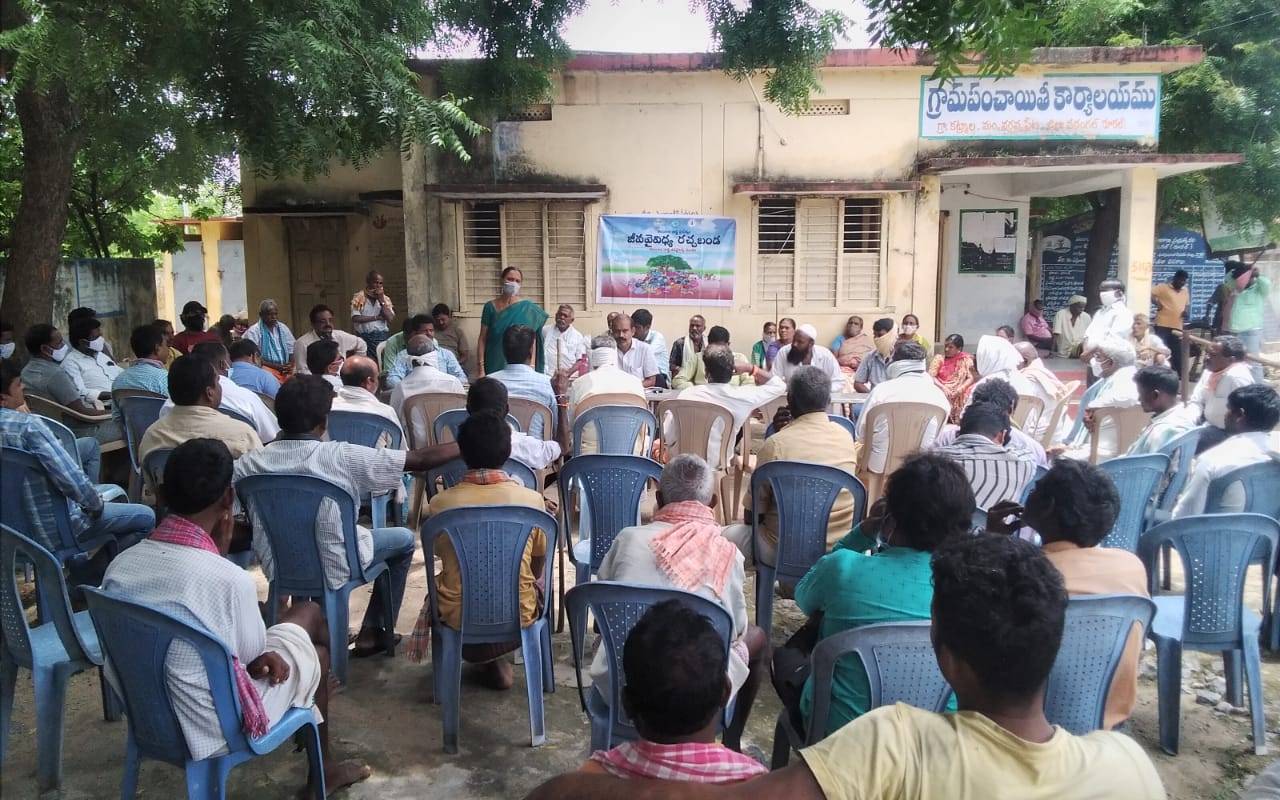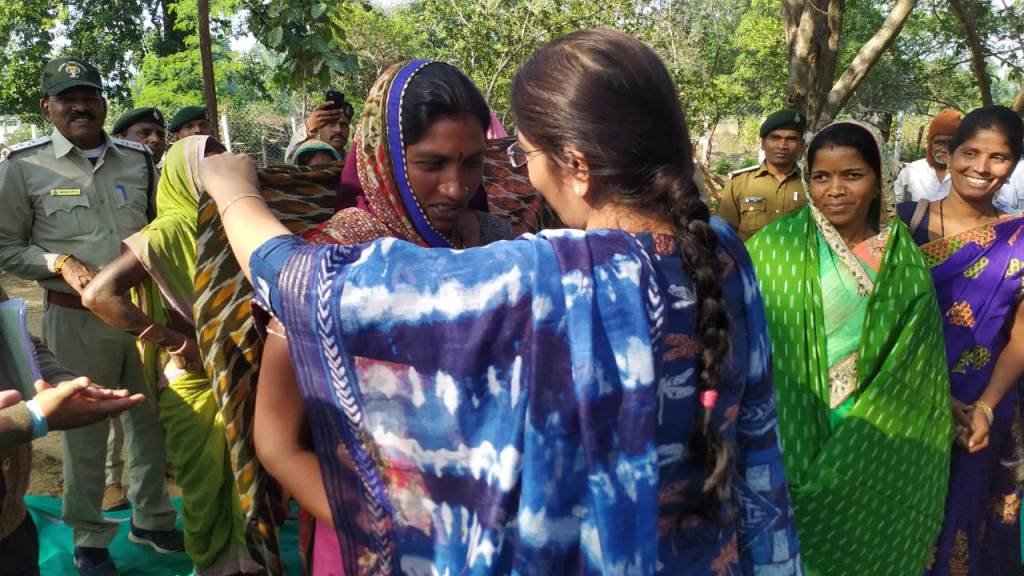
India is known for its rich biodiversity and is home to nearly 7-8% of the world's recorded species and four of the 36 globally recognized biodiversity hotspots. This immense natural wealth is coupled with a vast store of scientific and traditional knowledge, much of which is preserved and passed on by women. These women, who are often the unsung heroes, have played a crucial role in preserving biodiversity through seed storage, food processing, and health practices.

Historically, women have been the backbone of biodiversity conservation in India. From scientists and educators to policymakers and farmers, their contributions are enormous and invaluable. Despite making up half of India's population, women constitute only 15 percent of the research and conservation workforce. However, their active participation in science, technology, engineering and math (STEM), and conservation is crucial for economic growth and gender equality.
India's Biodiversity Act, which is aligned with the Convention on Biological Diversity (CBD), emphasizes the fair and equitable sharing of benefits arising from the use of biological resources and traditional knowledge. This principle, known as Access and Benefit Sharing (ABS), is crucial for better biodiversity conservation outcomes, especially at the local level. ABS not only incentivizes biodiversity conservation but also empowers stakeholders, especially women, by ensuring that they receive a fair share of the benefits.
The UNDP’s Biodiversity Finance Initiative (BIOFIN) recognizes the importance of equal participation and benefit-sharing between women and men as a catalyst for sustainable development. A shining example of this is the Access and Benefit Sharing Initiative led by the Indian Institute of Oil Seed Research (IIOR) and the Telangana State Biodiversity Board. This collaboration shows how involving women in agricultural research and biodiversity conservation can lead to transformative results.
Women as trailblazers
At the forefront of this initiative are exceptional women scientists like Dr P.S. Vimala Devi, a senior scientist at IIOR. Her pioneering research on a bacterium isolated from a dead larva has led to the development of environmentally friendly and non-toxic biopesticides. These biopesticides are crucial for the control of diseases and insect pests in crops and make an important contribution to sustainable agriculture. Dr Devi's work has earned IIOR the prestigious India Biodiversity Award 2016-17, which highlights the importance of women in pioneering research and innovation.

Photo: UNDP India, outreach meeting and capacity building of villagers on ABS and Biological Diversity Act held in Telangana, India
The benefit-sharing mechanisms introduced by IIOR have economically empowered local communities, especially women farmers. The gains from new oilseed varieties and biopesticides have improved their livelihoods and financial independence, demonstrating the transformative potential of women's participation in biodiversity conservation.
Implementing access and benefit-sharing frameworks
Women scientists have also played an important role in facilitating and implementing ABS frameworks. Dr Shilpi Sharma of the Telangana State Biodiversity Board has played a crucial role in negotiating ABS agreements and ensuring that local communities, especially women, get their rightful share of benefits. One milestone she recalls is the payment of Rs 25,000 to the Kothakota Biodiversity Management Committee for licensing DOR Bt-1 formulations to biopesticide entrepreneurs. This transaction, the first of its kind, set a precedent for the implementation of ABS even before the Biological Diversity Act of 2002.

Photo: UNDP India. Empowering women: A knowledge exchange meeting was held in Telangana about the crucial role of women in biodiversity, focusing on capacity building and sustainable seed conservation methods.
The Telangana State Biodiversity Board supports the formation and functioning of Biodiversity Management Committees, which are crucial for managing biodiversity at the local level. Women constitute one-third of the members of these committees and play an important role in biodiversity conservation. An exemplary biodiversity management committee is headed by Poogaku Sukeshini Vishweshwar, who emphasizes the invaluable contribution of women in decision-making and community engagement. She emphasizes how women use their in-depth traditional knowledge to enhance the Biodiversity Management Committee's initiatives to empower rural communities and promote sustainability.
Women supporting women
Dr Sharma also tells the remarkable story of how she took a group of women from Telangana to Madhya Pradesh where they learned the traditional craft of making leaf plates called 'pattals'. Inspired by this, these women introduced the craft in their village, produced 75,000 pattals and created new job opportunities. This initiative not only empowered them financially but also reinforced the idea that women empowering women can bring about significant positive change. "Fair and equitable sharing of benefits is not just a principle but a catalyst for sustainable development and women's empowerment," – says Dr Shilpi Sharma.
A vision for the future

Photo: Dr. Shilpi Felicitating BMC members of Hoshangabad district, Madhya Pradesh for their outstanding contributions and efforts.
Suppose India realizes the full potential of women in biodiversity conservation and sustainable development. In that case, it can continue to lead the world in the conservation and sustainable use of its rich biological resources. The stories of Dr. P.S. Vimala Devi, Dr. Shilpi Sharma, and Poogaku Sukeshini Vishweshwar illustrate the profound impact of women's leadership in science and conservation. Their contributions are not only catalysts for change but also pillars of a sustainable and equitable future.
Co-authored by Ruchi Pant, Biodiversity Lead at UNDP India, and Özlem Culhaci, Gender Focal Point at BIOFIN Global
Categories
Archives
- April 2025 (3)
- March 2025 (8)
- February 2025 (2)
- January 2025 (5)
- December 2024 (4)
- November 2024 (5)
- October 2024 (14)
- September 2024 (6)
- August 2024 (9)
- July 2024 (7)